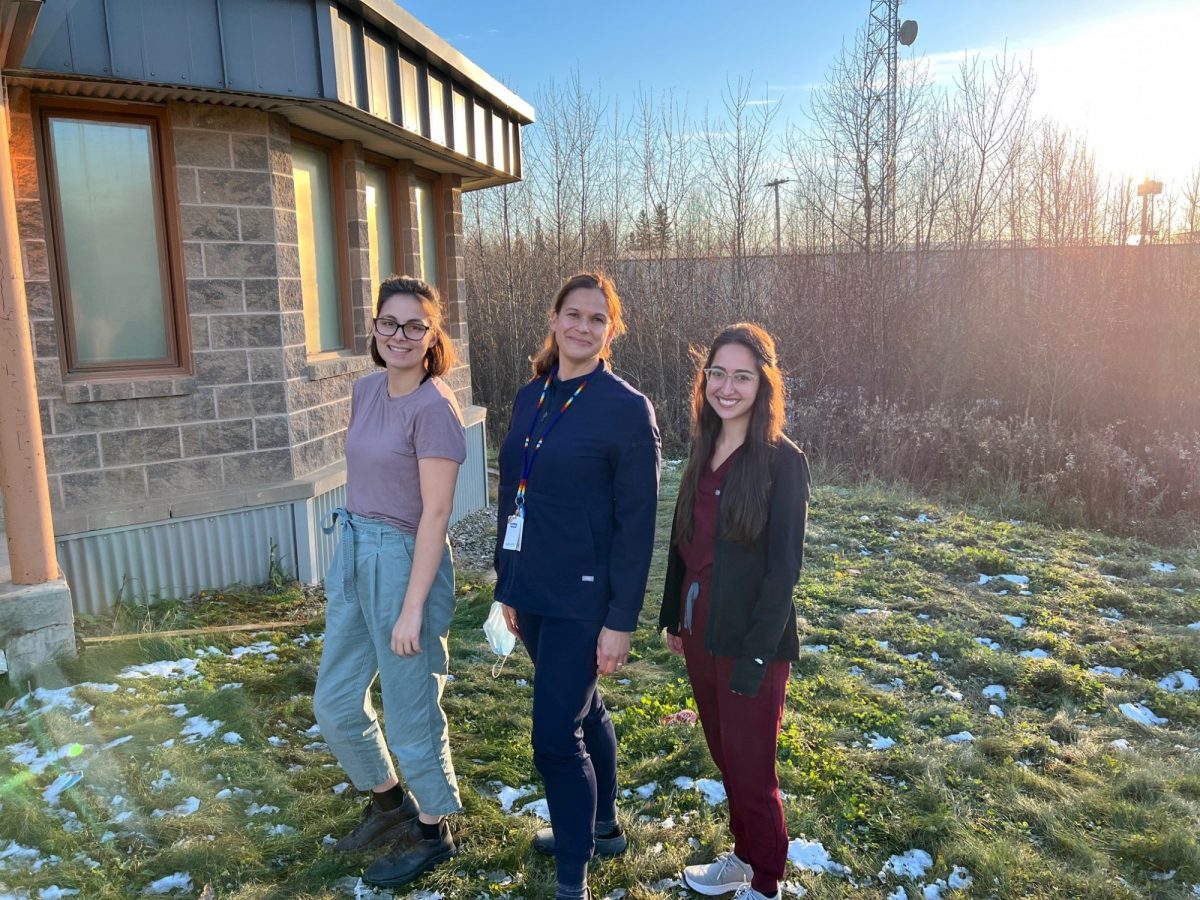
From left to right, Jade Young, Sara Goulet and Carly McLellan
Overcoming Obstacles
Three Indigenous women work together to provide health care in Garden Hill
When Dr. Sara Goulet’s father, a bush plane pilot, began flying her into First Nation communities in northern Manitoba, she knew she would work in those same communities one day.
“It showed me how resilient the Indigenous communities in northern Manitoba are and inspired me to want to work as a family doctor there,” she said.
Goulet has been working as a fly-in physician in Garden Hill, a First Nations community in northern Manitoba for over 10 years. But in 2021, for the first time when she looked around the room, she saw that the two other physicians were also Indigenous women.
“With Dr. Goulet, Dr. Jade Young and myself working, we realized that all the physicians in the community that week were Indigenous women. It was powerful,” says Dr. Carly McLellan, who graduated from the Max Rady College of Medicine in 2020.
Goulet, a 2005 UM MD graduate, is associate dean, admissions and the chair for the Indigenous admissions committee. She has been working to make sure Indigenous women like McLellan and Young feel encouraged to apply to and attend medical school at the Max Rady College of Medicine.
Goulet and her team take a multistep approach to increase the number of Indigenous applicants and students at UM. By working with Indigenous community groups and high schools, she lets Indigenous students know UM is a welcoming environment for them. Her hard work is paying off.
She says UM regularly has more Indigenous applicants than any other medical school in Canada. UM usually sees around 40 Indigenous applicants each year, whereas other schools might only have 10. Last fall, UM admitted 17 students of self-declared Indigenous ancestry into the Class of 2025, the largest group ever of Indigenous students to enter the Max Rady College of Medicine.
Like Goulet, McLellan has a passion for providing health care to Manitoba’s northern communities. Born and raised in Thompson, she knew she wanted to study at UM, especially when she heard about the new longitudinal Indigenous health curriculum led by Dr. Barry Lavallee and Linda Diffey.
“Five years ago during my interview for admission to medical school, I told Dr. Goulet my desire to one day work for Ongomiizwin Health Services in northern Manitoba. It was pretty incredible to go do that work with her years later,” says McLellan.
Since less than one per cent of physicians in Canada are Indigenous, McLellan had difficulty believing her dreams of becoming a doctor could become a reality.
“My biggest challenge in pursuing medicine was being able to visualize myself in the career. Even after I’d gotten into medical school, imposter syndrome was a major obstacle,” says McLellan. “Through Access and Ongomiizwin, I met Indigenous physicians and Indigenous health sciences students who demonstrated that my path was attainable.”
Making connections with other Indigenous physicians working in the field, and speaking to Goulet gave McLellan the power to push through the imposter syndrome and achieve her dreams.
“Most Indigenous students don’t have medical professionals in our families to ask for advice, so having that connection at university is invaluable. Our community inspires, encourages and supports one other,” says McLellan.
Being in a space with two other Indigenous women was not only a moving experience for McLellan, but made her hopeful for future students like herself.
“This is the first time I’ve ever been in a space where all the physicians were Indigenous,” says McLellan. “I’m hopeful this will occur more often in the future as more and more Indigenous youth pursue health care.“






